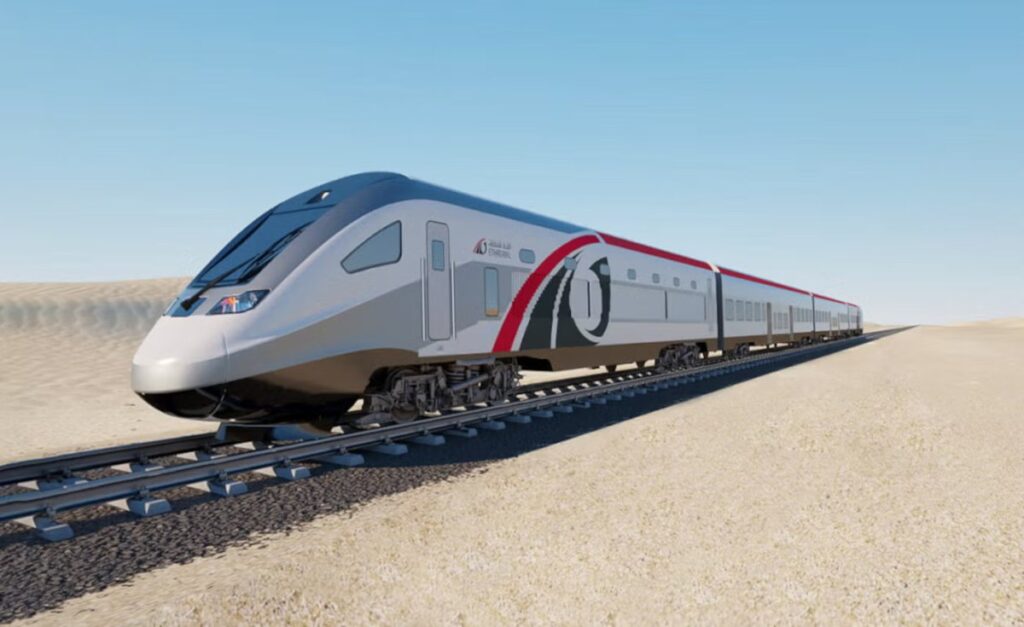The United Arab Emirates (UAE) has, in recent years, emerged as Africa’s leading foreign investor, channelling an estimated USD 130 billion between 2019 and 2023.
Much of this activity has been concentrated in transport and logistics, where Emirati companies such as DP World and AD Ports operate port terminals across the continent, while Emirates Airlines and Etihad Airways dominate air traffic. Increasingly, however, Abu Dhabi is extending its reach into rail, from the Horn of Africa to the Gulf of Guinea.
In January 2025, the UAE confirmed plans to finance a 250-kilometre railway linking Tog Wajale on the Ethiopian border to Berbera in Somaliland. The project, worth USD 3 billion, will provide landlocked Ethiopia, which relies on Djibouti for 90 per cent of its trade, with a vital alternative route to the sea. The line builds on DP World’s USD 442 million expansion of Berbera Port, completed in 2021, and is expected to reshape trade flows across the Horn of Africa.
Expanding rail corridors in East Africa
Kenya has become a focal point for Emirati engagement. In early 2025, Nairobi sought funding for the second phase of its Standard Gauge Railway (SGR), a 468-kilometre extension from Naivasha to Kisumu and Malaba. With Beijing reluctant to advance new loans after financing the first Mombasa–Naivasha section, Kenya turned to Abu Dhabi. Etihad Rail has since signed a memorandum of understanding with Kenya Railways to conduct feasibility studies for a new national rail network and potential involvement in the SGR. Discussions include a possible USD 4 billion concession to expand freight operations, enabling Kenya to strengthen trade links with Uganda, Rwanda and South Sudan.
During his May visit to Kenya and Uganda, UAE Foreign Minister Sheikh Abdullah bin Zayed Al Nahyan oversaw the signing of memorandums of understanding with both countries. In Kampala, the agreement aims to modernise Uganda’s national railway and expand cross-border trade, complementing other Emirati ventures such as the USD 4 billion oil refinery being built by Alpha MBM Investments.
Strategic ties with Central Africa
The railway push has also extended to Central Africa. In May 2025, Etihad Rail hosted a ministerial meeting in Abu Dhabi with representatives from Chad, Cameroon, and South Sudan. It signed a memorandum of understanding with Chad’s National Railway Office to update feasibility studies for the 800-kilometre N’Djamena–Ngaoundéré line, which would connect the Chadian capital to Cameroon’s Douala port. The project would be the first major new railway in Cameroon since 1972 and is considered critical for Chad’s economic diversification and export capacity.
The UAE’s growing engagement in railway projects underlines its ambition to consolidate a presence that complements its established role in ports and aviation. For African partners, the arrival of Emirati capital and expertise offers a means of modernising outdated networks, most of which were built during the colonial period. It also diversifies financing sources beyond China, which has dominated railway construction on the continent for a generation. Furthermore, Emirati railway engagement will support poverty alleviation efforts, as they will lead to employment opportunities, the emergence of development corridors, increase mobility as well as cross-border trade, at a time when the African Union and regional economic communities are undertaking initiatives to increase intra-regional trade.

